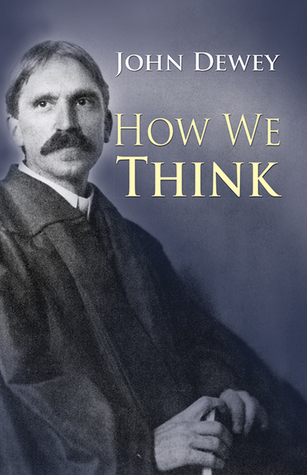John Dewey’s How We Think was originally published in 1910, and it remains a foundational work in the field of education. Dewey was a philosopher and educator who believed that learning should be an active process, with students engaging in problem-solving and critical thinking. In How We Think, Dewey explores the process of thinking and how it can be used to solve problems and create new knowledge.
Introduction to How We Think
In the opening chapter of the How We Think, John Dewey sets out to define what he means by “thinking.” He argues that thinking is a process that involves both generating ideas and critically evaluating them. This process is not limited to intellectual pursuits, but is necessary in all aspects of life.
Dewey’s Theory of Thinking
John Dewey’s theory of thinking emphasizes the importance of context and experience. He argues that thinking is not a purely mental process, but is influenced by the physical environment and the individual’s past experiences. He also emphasizes the social aspect of thinking, arguing that it is often a collaborative process that involves communication and interaction with others.
The Elements of Thought
John Dewey identifies several key elements of thought, including observation, judgment, inference, and reflection. He argues that each of these elements is important in the process of thinking, and that they are interconnected and interdependent.
Reflective Thinking
Reflective thinking is a central concept in John Dewey’s theory of thinking. He defines reflective thinking as the process of “active, persistent, and careful consideration of any belief or supposed form of knowledge in the light of the grounds that support it and the further conclusions to which it tends” (p. 78). Dewey argues that reflective thinking is essential for problem-solving and for generating new knowledge.
Problem-Solving and Inquiry
In the How We Think, John Dewey sees problem-solving and inquiry as central to the process of thinking. He argues that problem-solving involves identifying a problem, generating possible solutions, evaluating those solutions, and selecting the best one. Inquiry, on the other hand, involves asking questions and seeking answers in order to expand one’s knowledge.
The Role of Education in Thinking
John Dewey believed that education should be focused on developing the ability to think critically and creatively. He argued that traditional forms of education, which emphasize rote memorization and passive learning, do not foster the kind of thinking that is necessary for success in a rapidly changing world. Instead, he advocated for an education that emphasizes problem-solving, inquiry, and reflection.
Implications for Teaching and Learning
John Dewey’s ideas about thinking have had a significant impact on the field of education. His emphasis on active, experiential learning has led to the development of many progressive educational approaches, including project-based learning, inquiry-based learning, and problem-based learning. Dewey’s ideas have also influenced the development of constructivist theories of learning.
Criticisms and Controversies
Dewey’s ideas about thinking have not been without controversy. Some critics argue that his emphasis on experiential learning is too focused on the individual, and that it ignores the importance of social and cultural context. Others argue that his ideas about thinking are too abstract and difficult to apply in practical settings.
Conclusion
Despite the criticisms and controversies, Dewey’s How We Think remains a seminal work in the field of education. His ideas about the importance of active, experiential learning, reflective thinking, and problem-solving have had a lasting impact on educational theory and practice. Today, many educators continue to draw on Dewey’s ideas in order to develop innovative and effective teaching methods.
Bibliography
- Dewey, J. (1910). How we think. D.C. Heath & Co.
- Dewey, J. (1933). How we think: A restatement of the relation of reflective thinking to the educative process. Houghton Mifflin.
- Gutek, G. L. (2000). Philosophical and ideological perspectives on education. Allyn and Bacon.
- Kilpatrick, W. H. (1918). The project method. Teachers College Record, 19(4), 319-335.
- McCarthy, M. M. (1980). The crisis of the old order, 1919-1933. Oxford University Press.
- Piaget, J. (1970). Science of education and the psychology of the child. Viking Press.
- Vygotsky, L. S. (1978). Mind in society: The development of higher psychological processes. Harvard University Press.



 For all latest articles, follow on Google News
For all latest articles, follow on Google News